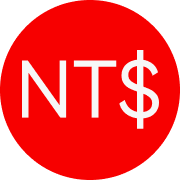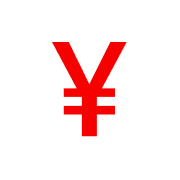
BMI to HKD Converter and calculator


Conversion rates
Convert BMI to HKD
Convert HKD to BMI
BMI to HKD chart
BMI to HKD conversion data: Volatility and price changes of Bridge Mutual in HKD
| Last 24 hours | Last 7 days | Last 30 days | Last 90 days | |
|---|---|---|---|---|
High | 0.02787 HKD | 0.02993 HKD | 0.03874 HKD | 0.05199 HKD |
Low | 0.01595 HKD | 0.01595 HKD | 0.01595 HKD | 0.01595 HKD |
Average | 0 HKD | 0 HKD | 0 HKD | 0 HKD |
Volatility | % | % | % | % |
Change | -39.16% | -44.72% | -59.18% | -43.59% |
Bridge Mutual information
BMI to HKD market statistics
Current BMI to HKD exchange rate
Bridge Mutual to Hong Kong Dollar is falling this week.More info about Bridge Mutual on Bitget
Hong Kong Dollar information
About the Hong Kong Dollar (HKD)
What Is the Hong Kong Dollar (HKD)?
The Hong Kong dollar (HKD), symbolized as HK$, is the official currency of the Hong Kong Special Administrative Region. It is subdivided into 100 cents or 1000 mils. The Hong Kong Dollar is the sole legal tender in Hong Kong, and it is widely used for all transactions within the territory. While Hong Kong is a part of China, it has a separate currency and operates under a different monetary system than mainland China, which uses the Chinese Yuan (CNY).
The Hong Kong Dollar (HKD) is issued by both the government and three major commercial banks, making it one of the few currencies in the world with such a dual issuance system. The government, through the Hong Kong Monetary Authority (HKMA), issues coins and the HK$10 banknotes, while the larger denominations of HK$20, HK$50, HK$100, HK$500, and HK$1000 are issued by The Hongkong and Shanghai Banking Corporation (HSBC), the Bank of China (Hong Kong), and Standard Chartered Bank (Hong Kong).
What Is the History of HKD?
The HKD's history dates back to the early days of Hong Kong as a British colony. Initially, various foreign currencies circulated in the region. The first local currency, the Hong Kong silver dollar, was minted in 1863. However, it faced resistance from the local population, accustomed to the silver Spanish dollar system. The 20th century saw several shifts in HKD's value, pegged at different times to the British pound and the US dollar. Since 1983, HKD has been linked to the US dollar at a rate of HK$7.80 = US$1, providing stability and confidence in Hong Kong's financial system.
Notes and Coins of HKD
Banknotes in Hong Kong are distinctively issued by three major commercial banks - The Hongkong and Shanghai Banking Corporation (HSBC), the Bank of China (Hong Kong), and Standard Chartered Bank (Hong Kong) - alongside the government, a rarity in global banking. These notes, available in denominations of HK$20, HK$50, HK$100, HK$500, and HK$1000, feature advanced security measures like watermarks and holograms, and occasionally, commemorative notes are released to mark significant events. The coinage, comprising denominations of 10 cents, 20 cents, 50 cents, HK$1, HK$2, HK$5, and HK$10, showcases designs that include the Bauhinia flower, a symbol of Hong Kong, and varies in composition from nickel-brass to cupronickel and brass-plated steel.
Can You Use HKD in Other Countries?
The Hong Kong Dollar (HKD) is predominantly used within Hong Kong and is not officially recognized as a currency in other countries. However, it finds notable acceptance in Macau, where, despite the Macanese Pataca being the official currency, HKD is widely accepted in various establishments due to the close economic ties and geographical proximity between the two regions. Additionally, in some border areas of Mainland China, particularly cities like Shenzhen, HKD might occasionally be accepted, primarily in businesses that cater to tourists from Hong Kong. Beyond these areas, HKD generally isn't accepted for everyday transactions, and travelers are advised to exchange it for the local currency or rely on international credit/debit cards. The HKD's status as a freely convertible currency facilitates its exchange in major cities and financial centers worldwide, reflecting Hong Kong's global financial significance.
Is HKD a Stable Currency?
The Hong Kong Dollar (HKD) is considered a stable currency, largely due to its peg to the US Dollar under a linked exchange rate system since 1983. This arrangement, supported by the Hong Kong Monetary Authority's substantial foreign exchange reserves, ensures consistent value and predictability. Coupled with Hong Kong's robust financial system and prudent fiscal policies, the HKD maintains stability despite global economic influences and its connection to Mainland China's economy, reinforcing its reliability in the global financial market.
What Is the Relationship Between HKD and CNY?
The Hong Kong Dollar (HKD) and the Chinese Yuan (CNY), also known as the Renminbi (RMB), maintain a distinctive relationship underpinned by the "one country, two systems" principle, allowing them to function as separate currencies despite Hong Kong's status as a Special Administrative Region of China. The HKD, pegged to the US Dollar, operates under a linked exchange rate system providing stability, while the CNY follows a managed floating rate system, reflecting different economic policies and market dynamics. This separation facilitates significant trade and investment flows between Hong Kong and Mainland China, necessitating frequent currency conversions. Hong Kong's role as an international financial center means that fluctuations in the HKD can influence the CNY, particularly in terms of capital flows and investment trends, and vice versa. Crucially, Hong Kong serves as the largest offshore Renminbi trading center, playing a pivotal role in the internationalization of the Renminbi, while both regions maintain a degree of policy coordination and communication, especially in broader economic strategies within China.
Popular conversions










Hot promotions
How to convert BMI to HKD



Buy
Sell
| Merchants (trades/completion rate) | Price | Amount/limit Low to high | Payment methods | Zero fees Action |
|---|
Popular Bridge Mutual Converter









Popular cryptocurrencies to HKD










BMI to HKD Conversion tables
| Amount | 02:16 am today | 24 hours ago | 24h change |
|---|---|---|---|
0.5 BMI | HK$0.007471 | HK$0.01293 | -39.16% |
1 BMI | HK$0.01494 | HK$0.02585 | -39.16% |
5 BMI | HK$0.07471 | HK$0.1293 | -39.16% |
10 BMI | HK$0.1494 | HK$0.2585 | -39.16% |
50 BMI | HK$0.7471 | HK$1.29 | -39.16% |
100 BMI | HK$1.49 | HK$2.59 | -39.16% |
500 BMI | HK$7.47 | HK$12.93 | -39.16% |
1000 BMI | HK$14.94 | HK$25.85 | -39.16% |
BMI to HKD FAQ
What factors influence the conversion rate of BMI to HKD?
Popular exchange rates — Crypto-to-Fiat converter
The price of Bridge Mutual in the US is $0.001904 USD. Additionally, Bridge Mutual’s price is €0.001629 EUR in the eurozone, £0.001390 GBP in the UK, C$0.002610 CAD in Canada, ₹0.1636 INR in India, ₨0.5413 PKR in Pakistan, R$0.01058 BRL in Brazil, and more.
The most popular Bridge Mutual currency pair is the BMI to Hong Kong Dollar(HKD). The price of 1 Bridge Mutual (BMI) in Hong Kong Dollar (HKD) is HK$0.01494.
Popular fiat
Popular areas
Purchase other cryptocurrencies with similar market cap











Other crypto price predictions
 Bitcoin(BTC)Price predictions
Bitcoin(BTC)Price predictions Ethereum(ETH)Price predictions
Ethereum(ETH)Price predictions Celestia(TIA)Price predictions
Celestia(TIA)Price predictions Solana(SOL)Price predictions
Solana(SOL)Price predictions Worldcoin(WLD)Price predictions
Worldcoin(WLD)Price predictions Bittensor(TAO)Price predictions
Bittensor(TAO)Price predictions Dogecoin(DOGE)Price predictions
Dogecoin(DOGE)Price predictions PepeCoin(PEPECOIN)Price predictions
PepeCoin(PEPECOIN)Price predictions Pandora(PANDORA)Price predictions
Pandora(PANDORA)Price predictions ORDI(ORDI)Price predictions
ORDI(ORDI)Price predictionsDiscover more cryptocurrencies
Latest coin listings on Bitget























